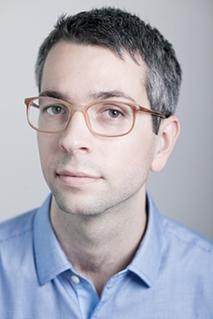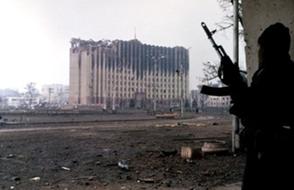
|
|
| photo: Smeeta Mahanti | |
Anthony Marra is the author of the novel A Constellation of Vital Phenomena. He has won a Whiting Award, a Pushcart Prize, the Atlantic's Student Writing Contest and the Narrative Prize and his work has appeared in Best American Nonrequired Reading. He is currently a Stegner Fellow at Stanford University.
Where did the idea for the novel come from? Were all your characters there from the beginning?
I've been fascinated with Chechnya ever since I was a college student in Russia. But the novel really began for me with the image of a surgeon waking up in a hospital room and walking into the corridor where two strangers waited for her. I followed the surgeon into the corridor and then into the novel, and over time I met the other characters populating it.
Did you have to do quite a bit of research on the history of Chechnya before starting the novel?
I began researching a few years before I even thought of writing the novel, and I continued as I wrote, culminating with a trip to Chechnya as I finished the book. The politics of the Chechen wars were less relevant than the day-to-day existence of civilians, and so I found memoirs, testimony and on-the-ground reportage by people like Khassan Baiev, Anna Politkovskaya, Andrew Meier, Sebastian Smith and Åsne Seierstad to be the most useful.
The novel has an unusual title. How did that come about?
The title, A Constellation of Vital Phenomena, comes from the medical dictionary definition of life. Life is structured as a constellation of six vital phenomena--organization, irritability, growth, movement, reproduction and adaptation--much as the novel is structured as a constellation of six point-of-view characters.
The book is so well written, filled with lyrical and gorgeous prose. Did you work hard on the novel's style? Did you see the style as a counter to the often brutal and harsh subject matter?
Absolutely. Language is the blueprint a reader relies on to reconstruct the novel's physical and emotional world, and so I tend to think that the power of fiction begins with the power of sentences. So yes, many rewrites went into honing the tone and style, and building out an omniscient voice that is flexible enough to jump between characters and years. By showing the larger scope of their lives, the way their individual stories are woven together into something larger, I hoped to suffuse even the novel's darker moments with its characters' humanity.
Were there any parts of the novel that were especially difficult to write?
Having only been on the patient side of the doctor's desk, I struggled with the finer points of a surgeon's day-to-day life. I slogged through a few dense medical papers, and eventually relied on a surgeon and a physician who each read a draft and kindly pointed out where I missed the mark.
How did you decide on the novel's structure?
I've always been drawn to tapestry-like novels that entwine characters and stories in wonderful and unforeseen ways, such as The Known World and The English Patient. In Constellation, I wanted to write a novel with arms wide enough to gather together its many characters, to explore how their lives are enmeshed in ways they might not individually understand. While the main action of the novel unfolds over the course of five days, it moves back through time over a 10-year period (and occasionally jumps years into the future), as it shifts between characters who search for, flee from, collide with, and find one another. In that sense I hope the novel mirrors at a structural level the process of recovery and reclamation that many of its characters seek.
 Were you influenced by other books? By Russian or Chechen literature?
Were you influenced by other books? By Russian or Chechen literature?
Tolstoy's final novel, Hadji Murad, set during the Caucasian Wars of the mid-19th century, casts a broad shadow over just about everything that has been written about Chechnya since. With good reason. The novel is beautiful and no less powerful for its brevity. In it Tolstoy writes across lines of ethnicity, gender and class with a generosity I've tried to draw from in writing of the more recent Russo-Chechen conflict.
Your characters are so vivid. Who's your favorite and why?
If I had to choose, I'd probably say Sonja, who has from the beginning been my guide. She's brilliant, tough, unsentimental, ambitious, and adamantly defies the expectations of her patriarchal society. Also, the narrative style allows for minor characters to have richer lives then their role in the novel would otherwise suggest. Some of my favorites include an exuberantly apocalyptic bus driver, a blind father and his deaf son who together find a way to prosper, and a hallucinatory Bee Gees fan.
Did your work at Stanford University as a Stegner Fellow help shape the novel in any way?
The Stegner Fellowship provided time to work on the novel and feedback from generous, sharp readers.
You're off to a good start. What's next for Anthony Marra?
I'm currently working on linked stories that look at the legacy of the Soviet Union (and the Chechen Wars) from the Russian perspective. --Tom Lavoie

